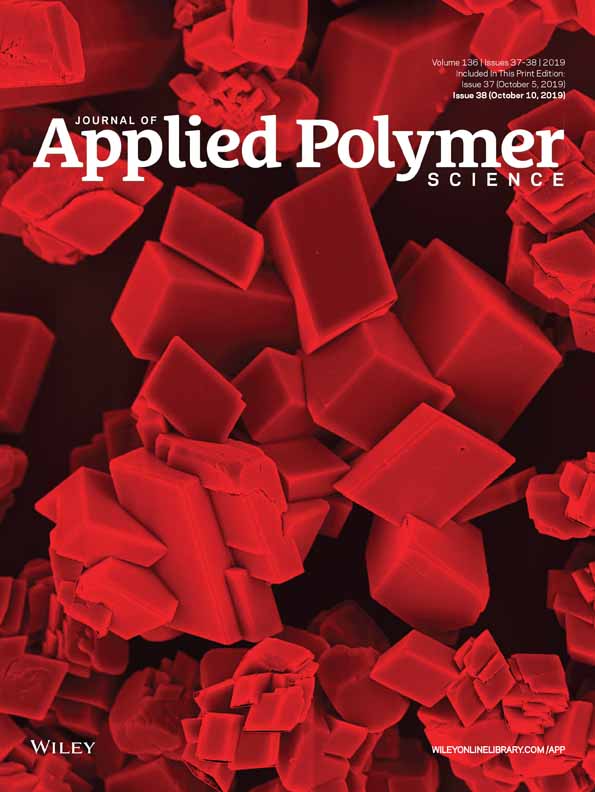L-menthol-based initiators for atom transfer radical polymerization of styrene
ABSTRACT
Two new atom transfer radical polymerization (ATRP) initiators, 2-isopropyl-5-methylcyclohexyl 2-bromopropanoate (1) and 2-Isopropyl-5-methylcyclohexyl 2-bromo-2-methylpropanoate (2), have been synthesized by the reaction of 2-bromopropanoyl bromide and 2-bromo-2-methylpropanoyl bromide, respectively, with L-menthol and characterized by 1H and 13C NMR and FTIR spectroscopic studies. ATRP of styrene has successfully been carried out in a control manner using these initiators along with catalyst/ligand system consisting of Cu(I)Br/N,N,N /,N /,N //-pentamethyldiethylenetriamine. Polymerizations have yielded polystyrenes (PSts) of controlled molecular weight with low polydispersity index having a menthyl end group, as confirmed by 1H NMR and gel permeation chromatography [GPC]. The controlled nature of the polymerization has also been confirmed by kinetic study of the polymerization process monitored via 1H NMR and GPC. Initiator 2 has evolved as most efficient among the two. The obtained end-functional PSt has also been used as a macroinitiator for homochain extension with styrene and heterochain extension with methyl methacrylate to produce PSt-b-PMMA, showing the living nature of the polymerization process. In comparison with the PSt sample prepared using widely used initiator ethyl-2-bromo-isobutyrate with almost the same molecular weight and polydispersity, initiator 2-made L-menthyl-capped PSt has shown higher light transmission properties of its dichloromethane solution at ~259 nm, higher thermal stability, lower glass transition temperature, a broad melting temperature, and higher surface roughness over its film. © 2019 Wiley Periodicals, Inc. J. Appl. Polym. Sci. 2019, 136, 47964.




